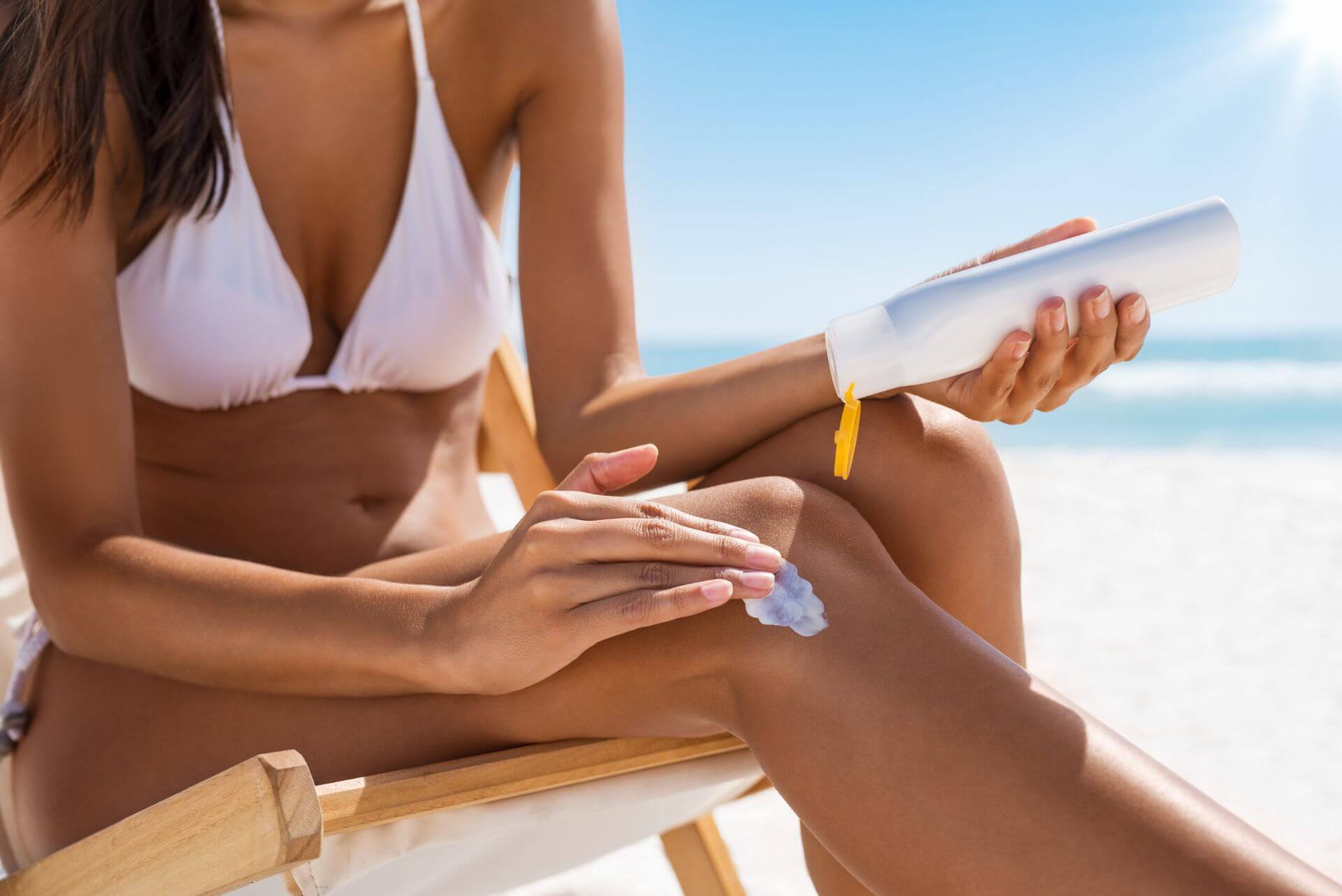Skin cancer is the most common cancer in the U.S. Nearly 10,000 people in the U.S. alone are diagnosed with some form of skin cancer every single day. You can drastically decrease your risk of skin cancer and skin precancer by wearing sunscreen.
Why Sunscreen is Important
Sunscreen has been proven to decrease the risk of developing squamous cell carcinoma by 40%. Squamous cell carcinoma (SCC) is the second most common form of skin cancer. SCC is characterized by the abnormal and fast growth of squamous cells. SCCs can look different on everyone, and so it’s important to have regular skin checks with your dermatologist.
Sunblock has been proven to decrease the risk of developing melanoma by 50%. Melanoma is a very serious form of skin cancer and can spread rapidly to other organs if it is not treated at an early stage. Melanoma occurs in melanocytes, which are the cells that produce the pigment called melanin. Melanin is the pigment that gives skin its color. When exposed to UV light from the sun or tanning beds, mutations can occur in the melanocytes resulting in accelerated and uncontrolled growth.
Sunscreen prevents aging caused by the sun including sagging, discoloration and sun spots, age spots, and wrinkles.
Types of Sunscreen
There are two types of sunscreen:
· Physical sunscreen ingredients block and scatter the sun’s harmful UV rays before they can penetrate into the skin. This includes ingredients such as the minerals titanium dioxide and zinc oxide.
· Chemical sunscreen ingredients absorb the UV rays before they can penetrate into the skin. This includes ingredients such as avobenzone and octisalate.
All active ingredients in sunblock are derived from chemicals. Organic sunscreens are chemical sunscreens with UV organic filters. Natural sunscreens are made with mineral ingredients such as zinc oxide and titanium oxide, which block the sun’s rays once they come into contact with your skin.
The best sunscreen is the one that you will use every day, whether it’s a spray or a lotion. When shopping for sunscreen, always choose a sunscreen that it at least SPF (Sun Protection Factor) of 15 or more. If you spend more time outside, especially during times of the day when the sun is the strongest, it is best to wear SPF 30 or higher. No matter the SPF, always apply sunscreen every two hours and after sweating or swimming. Even when it is cloudy, sunscreen should be worn when venturing outside.
Because experts suggest using a sunscreen every day, it’s most efficient to incorporate applying it to your whole body into your daily routine as you get dressed for the day. That way, your skin will be protected even if your clothing shifts around throughout the day.
Despite the benefits of sunscreen, wearing sunscreen alone is not enough to completely protect your skin from UV rays. Here are a few other tips to live a sun-safe life:
· Stay in the shade as much as possible
· Wear protective clothing such as hats, UV-blocking sunglasses, and shirts
· Keep infants out of the sun for the first six months
· Look out for windows as UV lights can pass through
· Do not use tanning beds
Observing safe-sun practices takes an intentional effort and starting with applying sunscreen over your whole body is a great first step. Remember to reapply it every two hours—regardless of SPF and even when it’s cloudy. Skin cancer is the most common cancer in the U.S., and taking simple steps such as wearing sunblock, staying in the shade, and wearing protective clothing greatly reduces your chances of sun damage and skin cancer.




